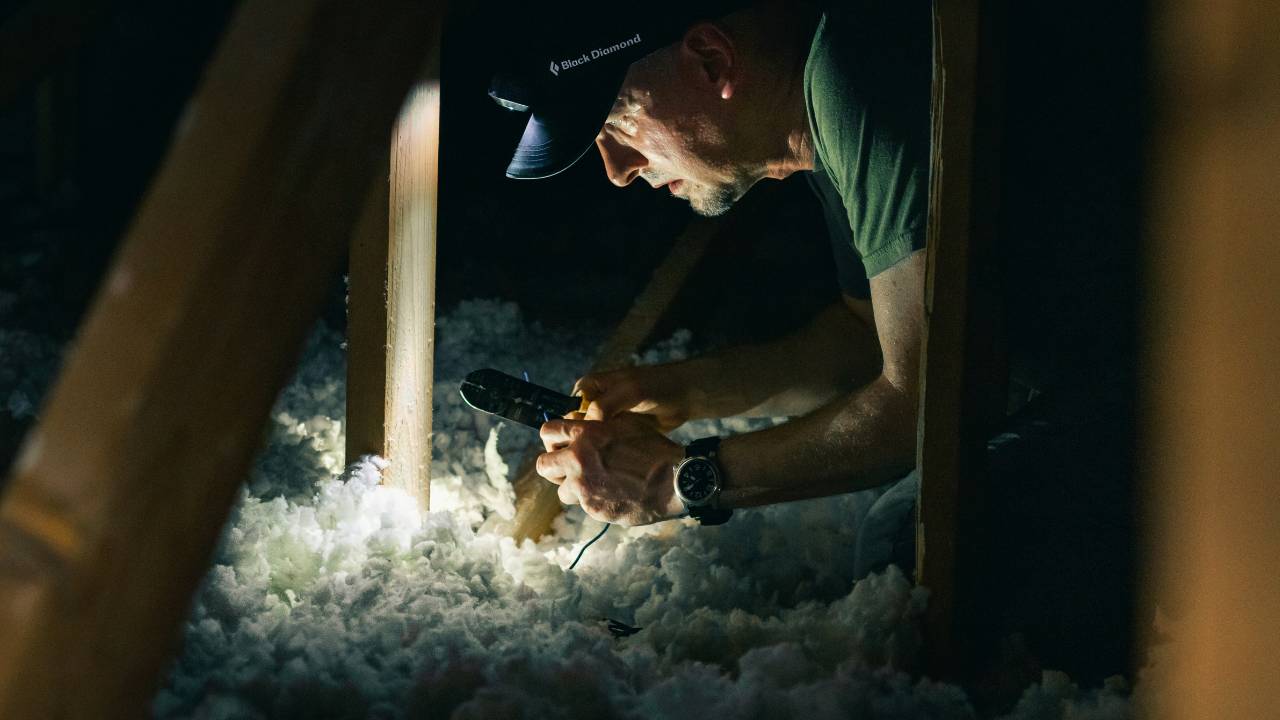
Upgrading your business premises with proper insulation might not be the most glamorous investment, but it can significantly cut costs and reduce your carbon footprint. By improving insulation, you can drastically decrease energy consumption, leading to lower utility bills and a more sustainable operation. This makes insulation not just an environmental choice, but also a smart financial decision.
Imagine slashing your heating and cooling costs while simultaneously minimising your environmental impact. Effective insulation helps maintain a consistent indoor temperature, reducing the need for constant heating or air conditioning. This means lower energy usage and cost savings that can be redirected to other vital areas of your business.
Moreover, demonstrating a commitment to sustainability can enhance your company’s reputation. Clients and customers increasingly favour businesses that take proactive steps to mitigate their environmental impact. Insulating your workplace not only makes economic sense, but it also positions your business as a responsible and future-focused enterprise.
The Business Imperative for Reducing Carbon Emissions
Cutting carbon emissions is crucial for businesses today. It not only meets policy requirements but also enhances your standing with customers and employees.
The Role of Carbon Taxes and Policy
Government policies and carbon taxes significantly impact your business operations and costs. By reducing carbon emissions, you can avoid hefty carbon taxes, which can otherwise erode profits. These policies are becoming stricter, pushing businesses to adopt greener practices.
Staying compliant with these regulations can also position your business as a leader in sustainability. It demonstrates responsibility and foresight. Moreover, many financial incentives are available for businesses that take proactive steps in reducing their carbon footprint, ultimately leading to long-term savings.
Building a Sustainable Reputation with Customers and Employees
A commitment to lowering carbon emissions can significantly boost your reputation. Customers are increasingly choosing brands based on their environmental impact. By demonstrating your efforts to reduce carbon footprint, you appeal to this growing eco-conscious market.
Employees also value working for companies that are committed to sustainability. It can aid in attracting and retaining top talent. For your business, this not only improves morale but also productivity and loyalty. A sustainable reputation is a powerful tool in today’s market, helping to set you apart from competitors.
Insulation as a Strategy for Energy Efficiency
Effective insulation plays a crucial role in enhancing energy efficiency, particularly by reducing heating and gas consumption. Selecting the appropriate insulation for different building components like roofs and windows can significantly impact your energy savings.
The Impact of Insulation on Heating and Gas Consumption
Insulating your building can substantially lower heating costs by trapping warmth during colder months. This results in reduced reliance on gas heating systems, translating to notable energy savings. Poor insulation often leads to heat loss, causing heating systems to work harder, thus consuming more energy.
In addition to mitigating energy usage, quality insulation improves indoor comfort by maintaining consistent temperatures. Usher Insulations Dublin offers solutions tailored to enhance your building’s efficiency and sustainability, ensuring that your heating bills are manageable while decreasing your overall carbon footprint.
Choosing the Right Insulation for Your Building’s Roof and Windows
Selecting the right insulation for your roof and windows is essential for maximising energy efficiency. Roof insulation can prevent up to 25% of heat loss in a building, making it a critical area of focus. Materials like fibreglass or foam boards are commonly used due to their high insulating properties.
Windows also play a vital role in energy conservation. Double or triple-glazed windows provide better insulation than single-glazed ones, reducing heat loss and improving energy efficiency.
Cost Savings through Energy Management

Effective energy management leads to significant cost reductions and a lower carbon footprint for businesses. Key strategies involve understanding energy bills and usage patterns as well as investing in renewable power, notably solar installations.
Understanding Your Energy Bills and Usage Patterns
Being aware of your energy bills and how your business consumes energy is crucial. Scrutinising these bills allows you to identify trends and patterns in your energy usage. This information forms the foundation for crafting strategies to cut unnecessary consumption and reduce costs.
Monitoring devices and smart metres provide detailed insights into how different areas of your business use energy. With the data collected, you can target specific areas for improvement. Not only does this help in reducing immediate costs, but it also supports long-term financial management.
Investing in Renewable Power and Solar Installations
Investing in renewable energy can yield substantial cost savings over time. Solar installations, in particular, are an excellent way to harness renewable energy. While the initial investment might be high, the long-term savings on energy bills are considerable.
Government incentives and grants often help mitigate upfront costs, making solar panels more accessible. Once installed, solar panels can significantly reduce dependence on conventional energy sources. By generating your own electricity, you lower your energy bills and contribute to a more sustainable environment.
Waste Reduction and Resource Optimisation
Waste reduction and resource optimisation are key for businesses looking to cut costs and reduce their carbon footprints. By implementing effective waste management practices and optimising resource use, businesses can achieve significant environmental and economic benefits.
Implementing Effective Waste Management Practices
Effective waste management starts with a clear plan for reducing waste generation. You can begin by conducting a waste audit to identify key areas where waste is generated. This helps in understanding the types and amounts of waste produced.
After identifying the waste sources, focus on recycling, composting, and reusing materials whenever possible. Encouraging your team to adopt these practices can significantly reduce waste sent to landfills.
Another important practice is working with suppliers to minimise packaging and opting for materials that are easier to recycle. By doing this, you can further reduce the waste your business produces.
Optimising Resources Use, from Water to Construction Materials
Optimising resource use can lead to cost savings and reduced environmental impact. Efficient use of water, for instance, starts with fixing leaks and installing water-saving fixtures. These simple steps can lead to considerable savings over time.
In construction, using sustainable materials and methods can significantly optimise resource use. Choose materials that have a lower environmental impact, such as recycled steel or sustainably sourced timber. This approach not only saves resources but also boosts your business’s green credentials.
Also, consider energy efficiency in your operations. Upgrading to energy-efficient lighting and heating systems can drastically cut energy consumption, further contributing to resource optimisation.
Creating Incentives for Employees and Customers

Boosting sustainability within your company can be achieved by encouraging green commuting methods for employees and by offering benefits for customers who make environmentally conscious choices.
Encouraging Sustainable Commuting Methods
Promoting green commuting options can significantly influence your energy strategy. By incentivising cycling, walking, or public transport, you reduce carbon emissions and boost employee wellness. You might offer cycle-to-work schemes, discounted public transport passes, or priority parking for carpoolers.
Establish secure bike storage and shower facilities to support employees who cycle to work. Recognise and reward those who consistently choose sustainable commuting methods. Consider launching competitions or challenges, such as “most miles cycled” each month, with appealing prizes. Providing these incentives can create a culture of sustainability and show employees that their efforts are valued.
Offering Benefits for Greener Consumer Choices
Encouraging your customers to choose greener products can reduce the carbon footprint linked to your goods and services. Introduce loyalty programmes that reward eco-friendly purchases. Offer discounts or special promotions on sustainable products.
Highlight the environmental benefits of these choices on your website and through marketing channels. Clearly label green products, making it easier for customers to make informed decisions. You can also run educational campaigns about the impact of their choices.
Partner with other eco-friendly brands to offer exclusive deals. This not only rewards your customers but also strengthens your company’s commitment to sustainability. Use social media to showcase customer stories, reinforcing the positive impacts of their green choices.
Sustainable Transport Solutions for Businesses
Adopting sustainable transport in business operations can significantly reduce costs and carbon emissions. This includes transitioning to electric vehicles and encouraging alternatives like cycling and public transport.
Advancing Towards Net Zero with Electric Cars
Switching to electric cars can drive you towards net zero emissions. Electric vehicles (EVs) produce no tailpipe emissions, helping to cut down air pollution in urban areas. They also reduce dependency on fossil fuels.
Many governments offer incentives for purchasing EVs, lowering the initial investment cost. Charging infrastructure is rapidly expanding, with more public charging points available. By integrating EVs into your fleet, you cut fuel costs and enjoy lower maintenance expenses due to fewer moving parts.
Implementing EVs can also enhance your business’s green credentials, which can attract eco-conscious clients and partners. As the market for EVs grows, so does the variety of models, allowing you to choose vehicles that meet your specific business needs.
Incorporating Cycling and Public Transport into Business Operations
Encouraging cycling and use of public transport can further advance your sustainability goals. Providing secure bike parking and showers can make cycling a more attractive option for employees. You might also consider offering incentives for employees who bike to work.
Supporting public transport use can be equally beneficial. Subsidising travel passes or coordinating with local transit authorities for better routes to your office helps reduce the number of cars on the road. Promoting flexible working hours can also help employees avoid peak travel times, making public transport more appealing.
Both measures not only assist in reducing carbon footprint but can also lead to healthier, more engaged employees. This approach can also help reduce the demand for parking spaces, freeing up valuable real estate for other uses.
The Case for Business Investment in Renewables and Insulation
Investing in renewable energy and insulation can deliver significant economic and environmental benefits. These efforts can enhance the bottom line while demonstrating a commitment to sustainability.
Studying Case Studies and Reports from Trustworthy Bodies
Various case studies highlight the tangible gains from investing in renewable energy and insulation essentials for business owners. For instance, a UK-based manufacturing firm reduced its energy costs by 30% after installing solar panels and high-quality insulation.
Reports from bodies such as the Carbon Trust and the Energy Saving Trust provide credible evidence that businesses save more with energy-efficient upgrades. These case studies show how investing in greener alternatives leads to lower operating costs and improved public image.
Understanding these reports equips you with the knowledge to make informed decisions. Trustworthy studies help to paint a clearer picture of potential savings and performance improvements. You’ll find that businesses across various sectors achieve significant cost reductions by going green.
The Long-Term Economic Benefits on the Bottom Line
From an economic perspective, investing in renewables and insulation offers substantial benefits. By upgrading your facilities with energy-efficient measures, you can expect a reduction in utility bills. These savings accumulate over time, enhancing your profitability.
Another advantage is the potential for tax incentives and grants, which can offset the initial investment costs. Many governments support businesses that adopt sustainable practices. Moreover, maintaining a lower carbon footprint can improve your reputation with eco-conscious consumers.
Profitability extends beyond the immediate savings. Enhanced energy efficiency can lead to higher property values and lower maintenance costs, further bolstering your financial health. So, while the initial investment might seem steep, the long-term benefits on your bottom line are promising.
Navigating the Legal and Structural Framework

By improving insulation, businesses can not only cut costs but also benefit from various policies and standards. These advantages include tax reliefs and compliance with European energy standards.
Understanding Tax Relief and Incentives for Eco-friendly Practices
Various schemes encourage businesses to adopt eco-friendly practices. For example, the Enhanced Capital Allowance (ECA) scheme in the UK offers tax relief for investments in energy-efficient technologies. By installing energy-efficient insulation, you can deduct the costs from taxable profits. This reduces tax liability, making the investment more appealing.
Likewise, in some European countries, similar incentives exist. These include grants and subsidies specifically aimed at promoting sustainable practices. Understanding the specific policies in your country can offer significant financial benefits, making it crucial to stay informed about available incentives.
Building Codes and Energy Standards in Europe
Different countries have their own building codes and energy standards. For instance, the Energy Performance of Buildings Directive (EPBD) requires EU member states to establish minimum energy performance requirements. Insulation quality is a critical component in meeting these standards.
Non-compliance can lead to penalties, making it essential to follow local guidelines and regulations. For example, the UK’s Building Regulations Part L sets specific requirements for insulation in new buildings and renovations. Staying compliant not only avoids fines but also enhances your building’s energy efficiency, contributing to long-term cost savings.
Conclusion
By investing in high-quality insulation, you not only save money on energy bills but also contribute to a more sustainable environment.
This dual benefit positions your business as a responsible corporate citizen while also increasing its competitiveness. Improved insulation can reduce heating and cooling costs, which results in immediate financial savings.
Over time, these savings accumulate, providing a significant return on your initial investment. Additionally, reduced energy consumption means lower carbon emissions, contributing to global efforts to combat climate change.
Incorporating insulation into your sustainability strategy demonstrates a commitment to environmental stewardship. It enhances your brand image and can attract eco-conscious customers.
Strengthening your business for the future means making choices that are both economically and environmentally sound.
Choosing the right insulation materials and techniques is crucial. You should consider options that provide the best thermal performance and longevity. Consulting with experts can ensure you make informed decisions tailored to your needs.
Investing in insulation is a proactive step towards sustainability and financial prudence. By doing so, you can ensure your business is equipped to face future challenges with confidence.
